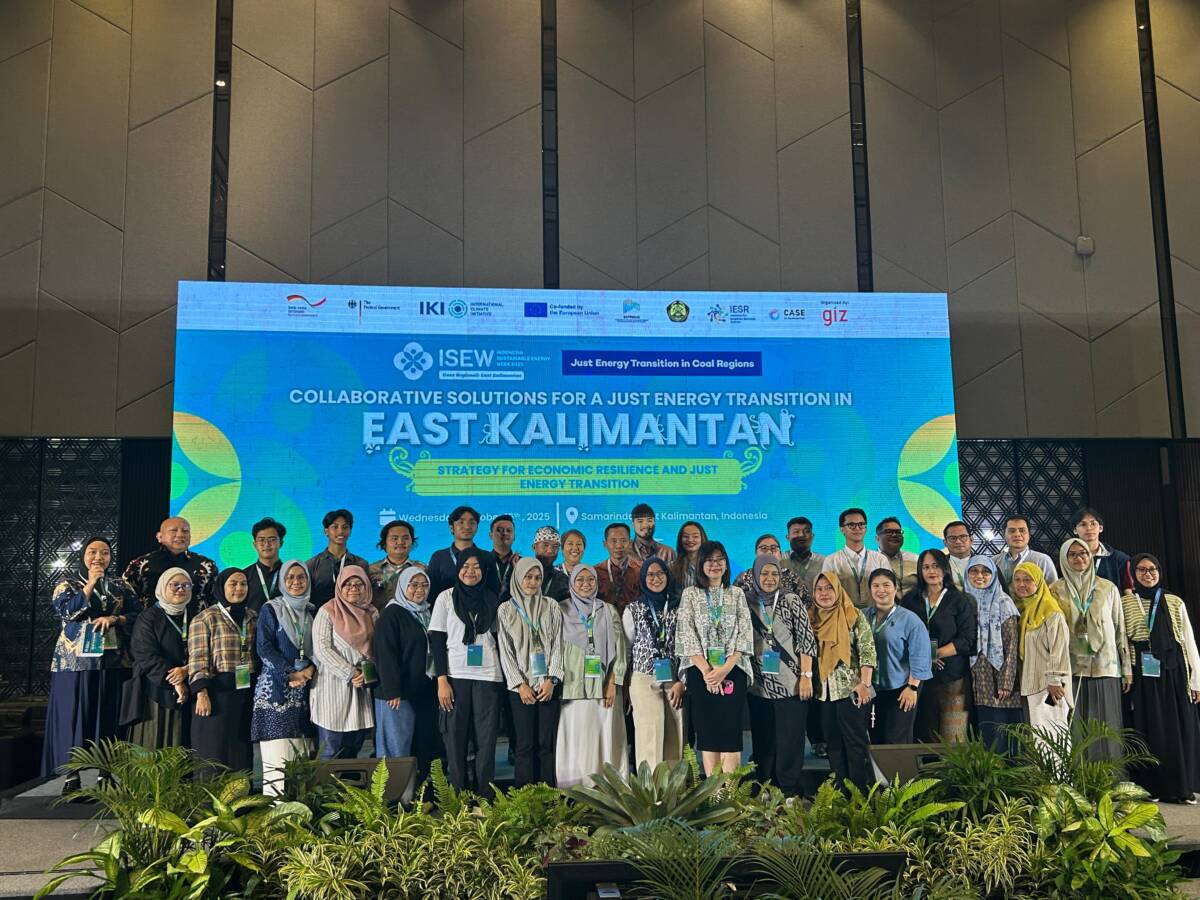Samarinda, October 15, 2025 – Synchronization among actors is the main key to encouraging a just energy transition, accompanied by strengthening human resource capacity. This capacity building is not limited to technical skills but also includes the ability to develop an entrepreneurial spirit. In this way, the energy transition can be realized equitably and provide economic benefits to the wider community. This was stated by Yusuf Suryanto, Director of Transmission, Electricity, Aerospace, and Space, Ministry of National Development Planning/Bappenas, in his opening remarks at the third day of ISEW 2025 on Wednesday (15/10/2025).
“A just energy transition is not just about fulfilling global commitments to reduce emissions, but also about opening up opportunities for green investment that can strengthen regional economies. Therefore, the strategic steps resulting from the discussions and sessions at the Indonesia Sustainable Energy Week (ISEW) 2025 are expected to become the basis for policy formulation and real implementation in the field,” said Yusuf.
Martha Jesica, Research Coordinator for the Social, Policy, and Economic Group at the Institute for Essential Services Reform (IESR), emphasized that in coal-producing regions such as Paser Regency (East Kalimantan) and Muara Enim (South Sumatra), economic dependence on the mining sector remains very high. Approximately 70% of Paser’s Regional Gross Domestic Product (PDRB) comes from the coal sector, with 7–15% of its residents working directly in this sector. Regional revenue also depends on natural resource revenue-sharing funds, reaching 20% in Muara Enim and 27% in Paser.
“Welfare inequality is still evident. A rising poverty ratio indicates social vulnerability as the regions begin to enter the energy transition phase. Furthermore, public involvement in planning is still limited because most mining authority lies with the central government. Consequently, many mining-producing regions do not have full control over the direction of their economic development,” Martha stated.
Not only that, Martha also highlighted that the role of women in the coal sector shows complex dynamics. IESR data in 2023 indicates that in large mining companies like Kideco, only about 15% of the total employees are women. Out of 722 employees in 2022, only 109 were women, and no women held director positions.
“The social and environmental burden from mining activities is also borne more heavily by women. They are responsible for water, food, and family health. In Samurangau Village, the women from the Family Empowerment and Welfare (PKK) organization noted the high incidence of Upper Respiratory Tract Infections (URIs) in children and the elderly, as well as difficulties accessing clean water. This situation has encouraged the emergence of local women’s organizations, such as Bawe Paser, which acts as a platform for advocacy and community solidarity,” Martha explained.
Reflecting on these conditions, Martha said that civil society organizations have an important role in ensuring a just and inclusive energy transition. Based on IESR records (2023–2024), their contributions cover four main aspects: first, advocacy and policy influence, by pushing the government to ensure energy transition policies consider social justice and environmental sustainability. Second, capacity building, literacy, and awareness, through training, public campaigns, and energy education at the local level. Third, monitoring and accountability, to ensure the transition process runs transparently and is pro-community. Fourth, partnerships and collaboration with various parties, including local governments, media, and local communities, to strengthen synergy in the implementation of the energy transition.

